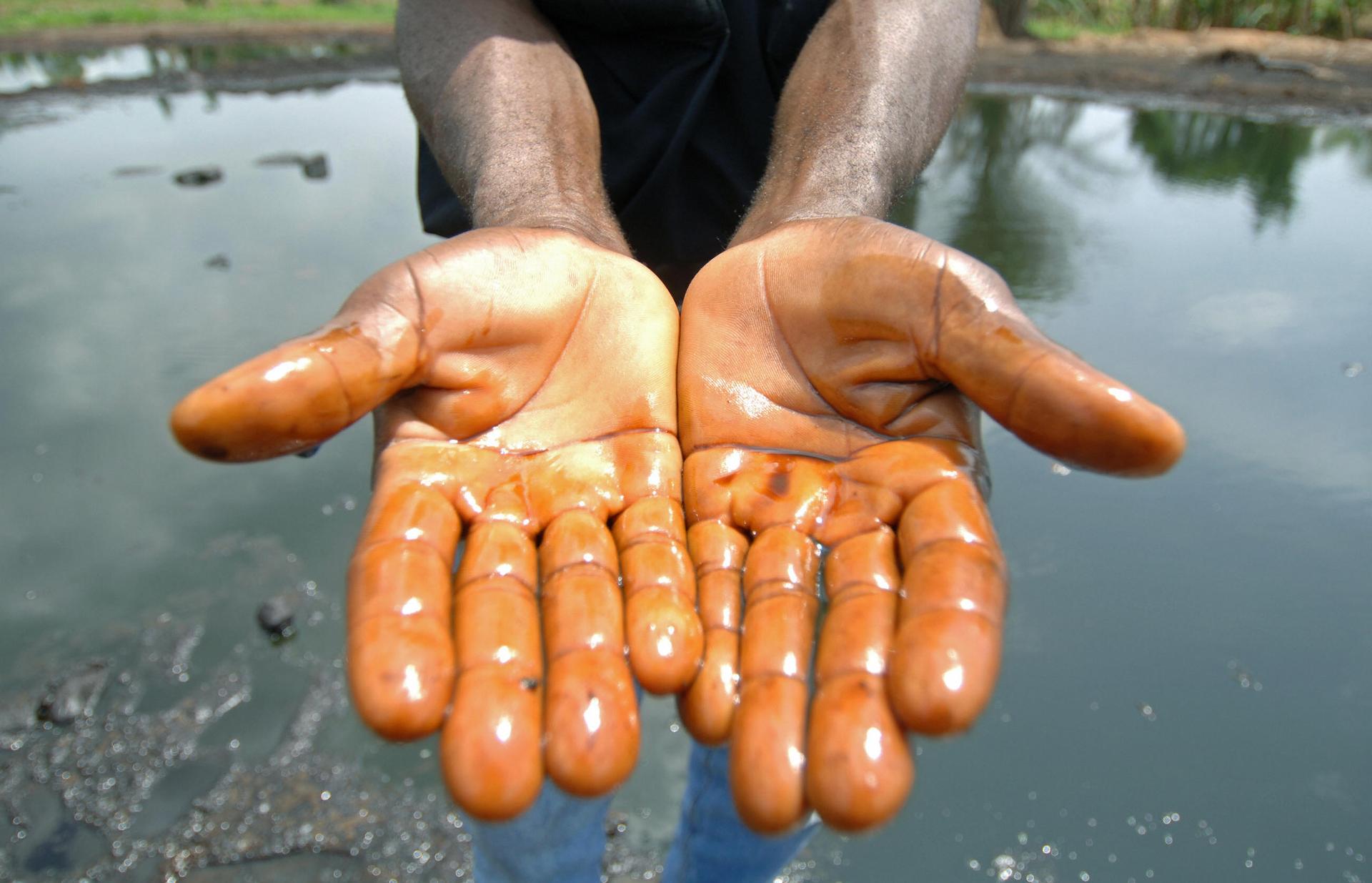Niger Delta oil spills: Nigerian villagers sue Shell over pollution
A man shows his crude-oil covered hands near an abandoned leaking well head in Kegbara Dere, Nigeria. The illegal oil business here is operating in defiance of the government.
Shell was in court on Thursday to face claims that its oil has poisoned the Niger Delta and destroyed residents' livelihoods, in what's been hailed as a landmark pollution case.
A group of Nigerian villagers, backed by Friends of the Earth, has filed the suit in The Hague in the Netherlands, where Shell has its headquarters.
According to Reuters, they are seeking compensation over three oil spills between 2004 and 2007, which they say turned their part of the Niger Delta into "a ghost land."
They also want Shell to clean up the pollution and fix any leaks in its pipelines, Agence France-Presse said.
"Fish died as a result of the oil spill, making it difficult for me to live and put my children through school," one of the four plaintiffs, fisherman Friday Alfred Akpan from Ikot Ada Udo village, told the BBC. Others described respiratory problems and dying crops.
More from GlobalPost: Nigeria oil spills sicken delta communities
The devastation that oil pollution has wrought in the Niger Delta is indisputable. GlobalPost's correspondent Heather Murdock has described what she saw there:
"Oil floats on the delta’s waterways, killing and contaminating the plants and animals in one of Africa’s most bio-diverse regions. Along the banks of the creeks, muddy fishing villages are slick with oil that washes ashore. Villagers say they drink and bathe in the oily waters and as a result, children are dying of diseases."
The issue at stake in this case is who is responsible for the spills, and who should clean them up.
Shell maintains that most of the leaks are caused by saboteurs and thieves, not by leaky pipes.
The firm says it has already helped to clean up some of the pollution, an operation it claims is complicated by insecurity in the region, according to the BBC.
If the Dutch court disagrees, however, it will set an important precedent – demonstrating that a company can be found liable at home for damage it does abroad.
"Until now it's been very tricky because it's difficult to bring cases against these companies in developing countries themselves, because the legislation is often not advanced or properly applied," Jonathan Verschuuren, an expert in environmental law at Tilburg University, told AFP.
More from GlobalPost: Nigeria's illegal oil business is booming
We want to hear your feedback so we can keep improving our website, theworld.org. Please fill out this quick survey and let us know your thoughts (your answers will be anonymous). Thanks for your time!
